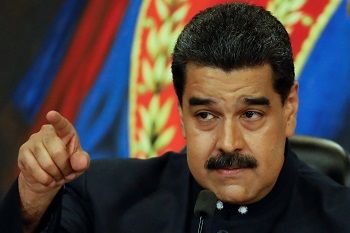The US Treasury is now limiting sales of Venezuela sovereign bonds to non-US entities, following a similar move last week on debt issued by state-owned oil firm PDVSA, market players told IFR on Monday
The ban, along with other clarifications from the US Treasury on Friday, were seen having broad implications for the eventual renegotiation of billion of dollars in Venezuelan defaulted debt once sanctions are lifted.
Trading of PDVSA bonds ground to a halt last week after the US banned trading of the bonds among US entities as part of broader sanctions against the company.
Trading houses contacted by IFR have also largely stopped quoting prices on the sovereign bonds as well.
“It appears everyone is still trying to understand the exact implications for the republic bonds trading, but for the time being trading has halted until there is more clarity,” said a buyside analyst.
Indeed, many market players are at a loss to explain exactly why the US would target secondary trading of both sovereign and PDVSA held by large US institutional investors with no apparent impact on Maduro himself.
“I can only guess their motivation,” said Siobhan Morden, head of LatAm fixed-income strategy at Nomura.
“It is either to discourage the resale of bonds from Chavistas (Maduro supporters) or it is a premeditated attempt to avoid participation from activist investors so there is a more orderly restructuring.”
Big US asset managers such as BlackRock, T Rowe Price and Pimco are holders of PDVSA bonds, according to Refinitiv data.
Venezuela bonds have been a top performer this year as the buyside bet on the downfall of embattled President Nicolas Maduro, broadly blamed for the country’s economic and humanitarian crisis.
“Vene sovereign bonds returned 38% in January on rising expectations of regime change in Caracas,” said US based investor.
“That was always to be expected when optimism finally emerged about a new government that would be capable of re-engaging with the international community, including with IFIs and the global capital markets”.
Earlier this month, Venezuelan bonds rallied several points after Venezuela’s 35-year old opposition leader Juan Guaido declared himself interim president - a move backed by the US and a string of other countries.
Investors may just prefer to hold on to their Venezuelan holdings until sanctions are lifted when and if democratically elected government takes control.
But even then creditors may face tough negotiations against a new government.
“I think the latest OFAC move is geared towards inflicting pain on bondholders, most of whom will have bought their current Vene securities in the secondary market,” the investor said.
Bonds issued by the Venezuelan government have courted controversy amid a worsening humanitarian crisis. Some critics argue that there should be a pricing penalty on debt stock issued governments seen as despotic.
Harvard professor Ricardo Hausmann, who is close to the Guaido team, was recently quoted by Bloomberg arguing that creditors will need to take a hit as the country prioritizes Venezuelans who have suffered under the Maduro government.
“Ricardo Hausmann has been talking a lot about odious debt and the need for deep haircuts,” the investor said.
PDVSA 2020s
Interestingly, the US Treasury authorized on Friday that US holders of the PDVSA 8.5% 2020s - which are backed by its US subsidiary Citgo - to enforce their collateral rights “to keep sanctions pressure where it belongs - on the Maduro regime.”
The bonds have been a focus of contention in US courts, which have allowed Canadian gold miner Crystallex to attach shares of PDV Holding, which owns Citgo.
Cleary Gottleib lawyers argue that this “strongly suggests that Crystallex would not be authorized to execute against the shares of PDV Holding,” absent further changes by the Treasury.
Unlike with its other bonds, the government has remained current on the 2020s, given the value it puts in the Citgo assets. But with the sanctions imposed on PDVSA last week, markets remain unclear about the next coupon payment in April.
“It looks like Cyrstallex’s access to the shares and their subsequent sale is forbidden. This will allow PDVSA 2020 bond holders to enforce their claim,” said an analyst.
“There appears to be an assessment of preferred creditor status by the US government.”
